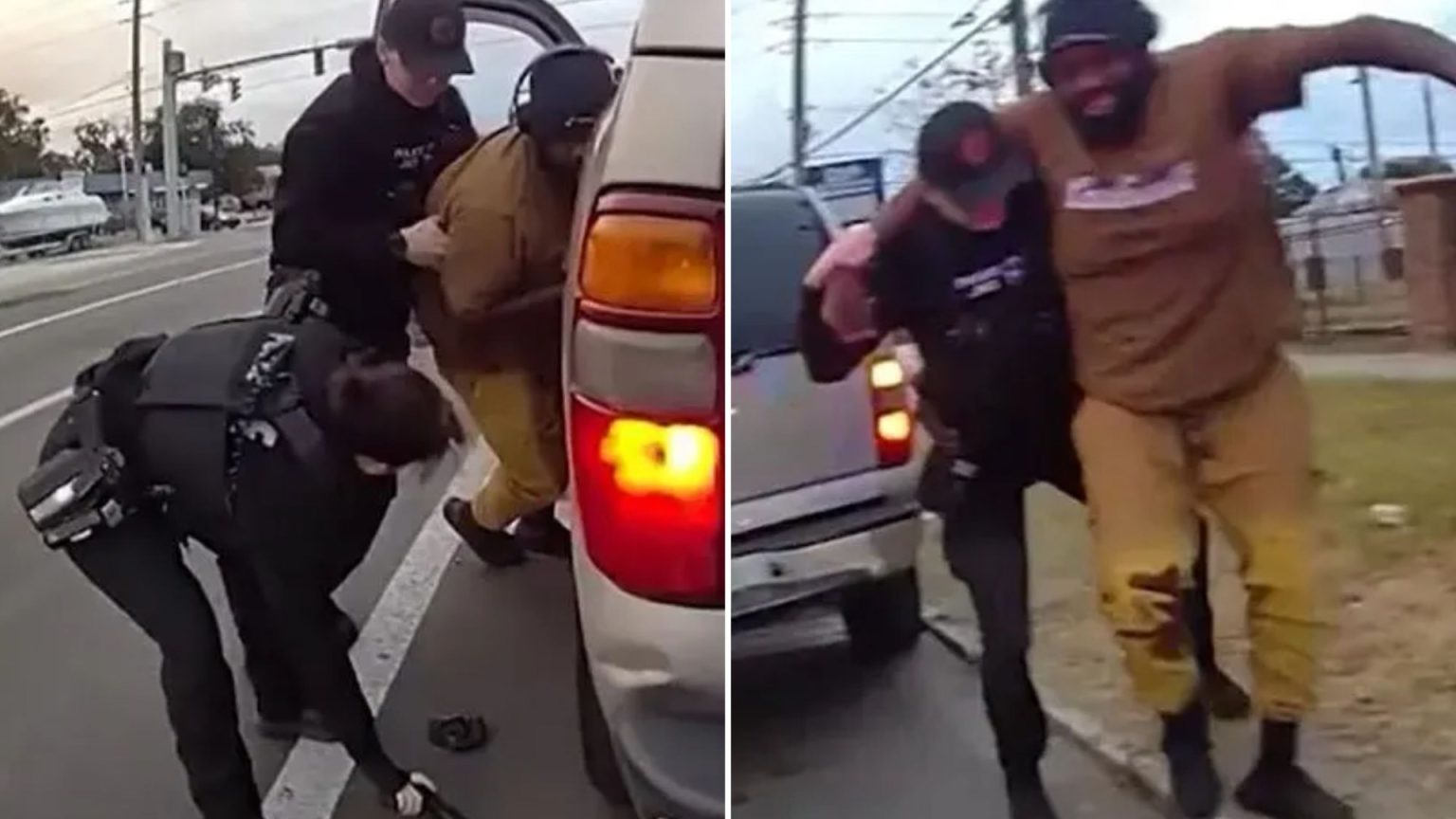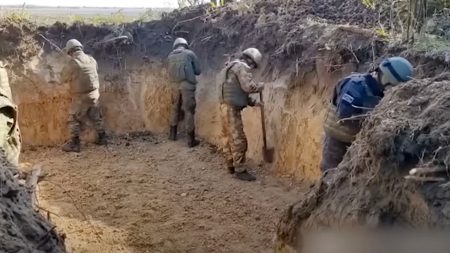On December 13, 2024, a routine traffic stop in Jacksonville, Florida, escalated into a shocking incident of accidental gun violence, leaving the driver, Jason Arrington, with a gunshot wound to his leg. Arrington was initially pulled over for speeding through a red light. Bodycam footage released by the Jacksonville Sheriff’s Office reveals a cooperative Arrington informing the officer of a legally possessed firearm. The initial interaction appeared calm and respectful, with the officer acknowledging Arrington’s honesty. The situation deteriorated, however, when a second officer, identified as Officer Cardwell, attempted to conduct a body search. As she tried to remove the firearm from Arrington’s pocket, the gun discharged, striking him in the thigh.
The bodycam footage captures the chaotic aftermath of the accidental shooting. Arrington, visibly in pain, gripped his car for support as blood soaked his pants. Officer Cardwell, seemingly stunned by the incident, remained silent as another officer urgently instructed her to place the discharged weapon on the ground. The officers on the scene quickly moved to provide medical assistance to Arrington, applying a tourniquet to control the bleeding until further medical aid could arrive. Amidst the falling snow, a stark contrast to typical Florida weather, the scene unfolded as a stark reminder of the potential for unforeseen and tragic consequences during even seemingly routine police interactions.
The Jacksonville Sheriff’s Office launched an internal investigation into the incident, ultimately concluding that Officer Cardwell’s actions constituted incompetence. The investigation revealed that Officer Cardwell had inadvertently placed several fingers inside the trigger guard while attempting to remove the firearm from Arrington’s pocket, leading to the accidental discharge. As a result of their findings, the Sheriff’s Office initiated termination proceedings against Officer Cardwell. This incident underscores the critical importance of proper firearms training and handling, especially in high-stress situations like traffic stops and arrests.
Jason Arrington, a licensed gun owner, survived the shooting but sustained injuries that have impacted his ability to work as a crane operator. He has subsequently filed a lawsuit against the Jacksonville Sheriff’s Office, seeking compensation for his injuries and damages resulting from the incident. This lawsuit raises complex legal questions regarding police liability, the use of force, and the potential consequences of accidental shootings during law enforcement procedures. The outcome of this litigation will likely have significant implications for both Arrington and the Jacksonville Sheriff’s Office.
This incident serves as a stark illustration of the complexities and potential dangers inherent in police-citizen interactions, even when individuals are cooperative and compliant with law enforcement instructions. The accidental shooting highlights the importance of comprehensive training for police officers, emphasizing proper firearm handling techniques, de-escalation strategies, and the critical need for maintaining composure under pressure. Furthermore, it underscores the need for ongoing review and refinement of police procedures to minimize the risk of such incidents occurring in the future.
The case of Jason Arrington and Officer Cardwell has garnered significant attention, sparking discussions about police accountability, the use of force, and the right to bear arms. The incident serves as a reminder of the potential for tragic consequences when firearms are involved, even in seemingly controlled environments. As the legal proceedings unfold, the case will likely continue to fuel debate about the delicate balance between public safety, individual rights, and the responsibilities of law enforcement officers in their interactions with the community. The outcome of this case will likely have lasting implications for both the involved parties and the broader conversation surrounding police procedures and accountability.











